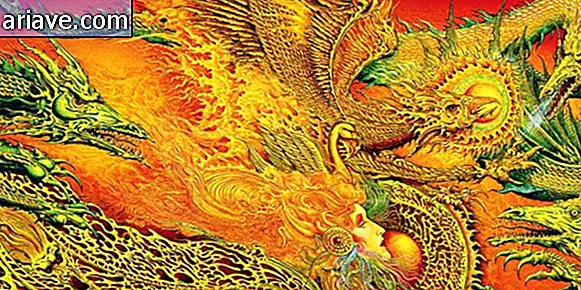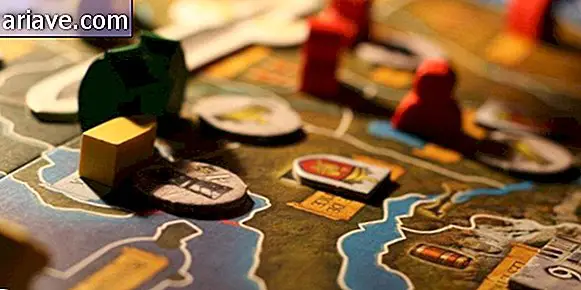How is Easter celebrated in other parts of the world?
Easter has arrived and, at least here in Brazil, it is common to present friends and family with delicious chocolate eggs. But what about the rest of the world, how do Christians celebrate this date, which is one of the most important festivals on the calendar? As you can imagine, in some countries the celebrations are very similar to ours, while in others ... Check out some of them:
Germany

In Germany, as here in Brazil, it is customary for people to present friends and family with chocolate eggs, and Easter is a big celebration. And a famous festival that takes place in the country is the staging of the Passion of Christ, which, since the 16th century, takes place every ten years in the city of Oberammergau.
It all started when Oberammergau was just a village and almost ended up destroyed by the Black Death. To try to save the city, the religious leaders have promised to play a play to praise God every decade forever, and the tradition continues to this day. The last piece took place in 2010, and tickets are usually bought years in advance, as people from all over the world often watch megaproduction.
Spain

In Spain, usually the entire Holy Week is considered a holiday - lucky Spaniards! -, and during this period there are numerous celebrations throughout the country. Among them are numerous processions that take over the streets, during which beautifully adorned saints are loaded with flowers and the parade of various brotherhoods takes place.
And this is where it gets a little sinister, because the people who participate in these brotherhoods dress in a very peculiar way. The groups - known as penitents or Nazarenes - dress in full-body tunics and tall, pointed hats that cover their faces, similar to the infamous Ku Klux Klan's attire. Also, one of the groups is quite scary, as the members all dress in black and drag chains along the streets.
However, there is no custom of giving people chocolate eggs like here, and people gather to eat some kind of very creamy hot chocolate colomba.
England

As here in Brazil, in England there is also the custom of giving chocolate eggs, especially to children. But they also have some traditional - and very fun - jokes that happen around this time, such as pie warfare, a kind of soccer game involving beer kegs and rolling boiled eggs down the hill.
In addition, another tradition is for the Queen to hand out specially minted coins for the occasion in front of Westminster Abbey in London. This celebration takes place every two years, and normally distributed objects become collector's pieces.
Greece

On Good Friday, it is common for some Greek Orthodox churches to set up a kind of tomb in the center of temples, which are visited during Mass as if it were a funeral. In addition, numerous processions also occur, and Greeks often use red-painted eggs to represent the blood of Christ, which is broken after the resurrection is announced.
One of the traditional Easter foods in Greece is roast lamb, and some still follow the custom of eating soup made on the stomach of the animal on Sunday morning.
Philippines

Whether giving away chocolate eggs or not, Filipinos have a rather extreme way of celebrating Easter. As a sign of penance, some Catholics carry huge crosses on their backs and are crucified - really - just like Jesus, and the ritual has its high point at three o'clock in the afternoon, when Christ is believed to have died.
Other believers whip their backs until they bleed, and although local religious leaders discourage such extreme manifestations of faith, sacrifices continue every year, following a tradition begun in 1955.
Ethiopia

Curiosities about the celebration of Easter in Ethiopia begin at Lent, when the most ardent Catholics cease to consume any animal products. This means that in addition to meat, they also avoid milk, butter, eggs, cheese and yogurt, for example.
And on Palm Sunday there is a beautiful festival - called Fasika - during which Ethiopians dress in white and wear headdresses and rings made from palm leaves. Regarding the typical food, there is the custom of eating lamb stew or lamb with a kind of pancake, as well as a sour bread called "Dabo".
* Posted on 22/03/2013











